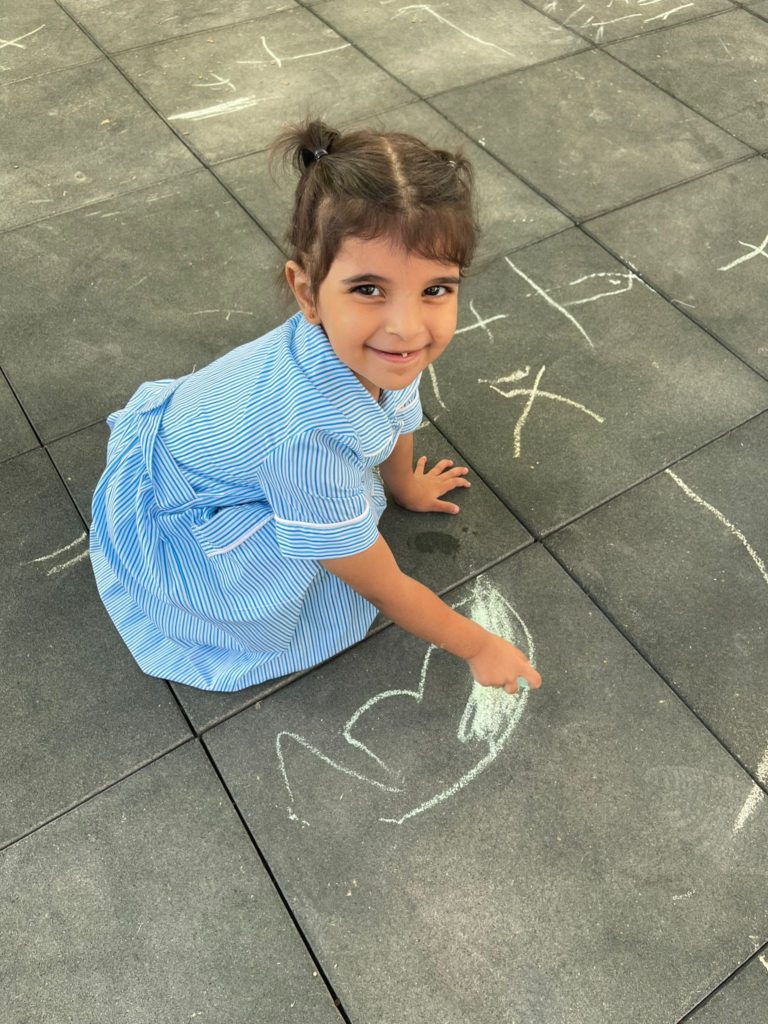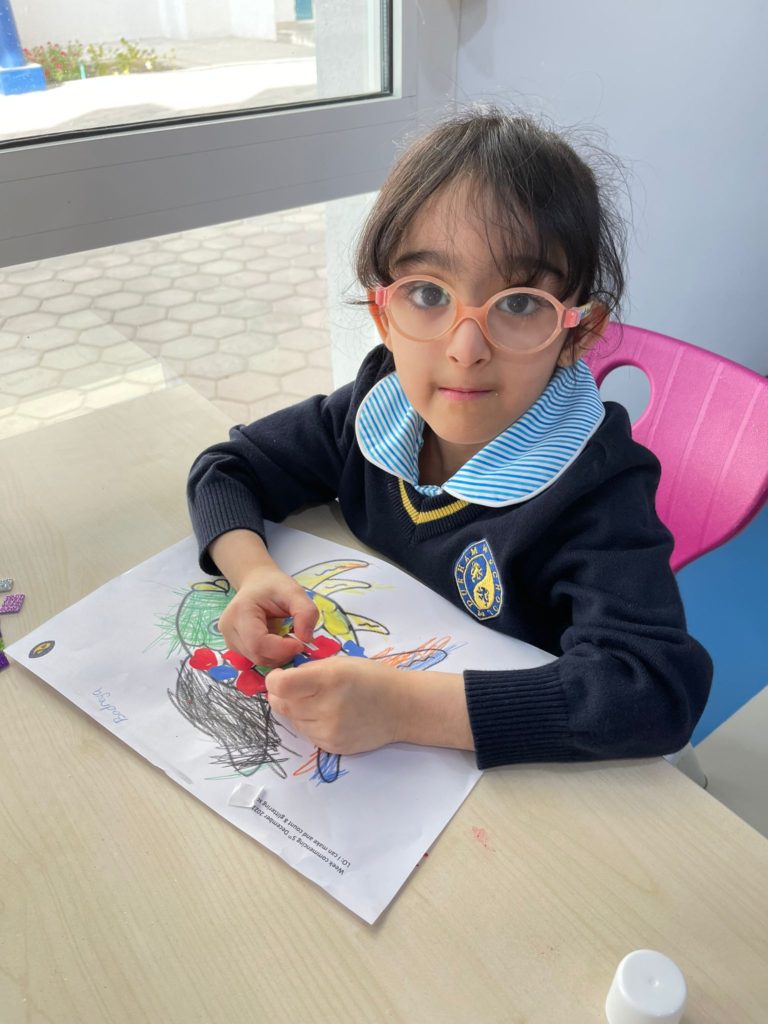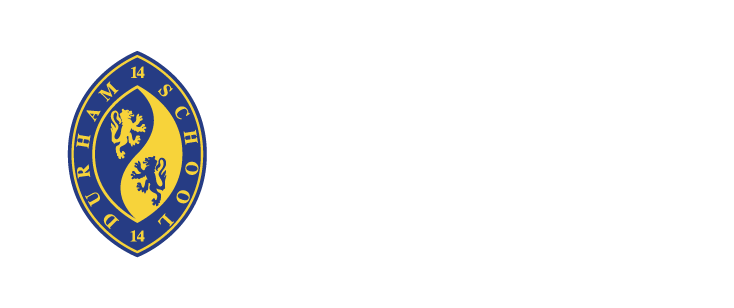EYFS 1 & 2
Durham School for Girls Doha aims to inspire a lifelong appetite for learning in a caring environment
that will develop emotional, moral and spiritual strength for future leaders.
Early Years Foundation Stage in Durham School for Girls
1. Overview
Children entering Durham School for Girls in EYFS start Foundation One in September after their third birthday. The Early Years Foundation Stage is a two-year phase. There are 4 classes of Foundation Stage One (Nursery) and 4 classes of Foundation Stage Two (Reception). Where possible, class sizes do not exceed 24. Teaching assistants support the class teachers in the delivery of the curriculum and specialist teachers deliver carousel activities in Art, Music and Computing, as well as an informal approach to Arabic. The girls in Foundation Stage will love visiting the library each week.
The pupils have a dedicated play area featuring a range of activities, including wheeled vehicles, keeping them fully occupied at break times! Our wonderful staff provide a range of challenging outdoor play activities such as water, sand, mark making and small world. The learning environments are a hive of activity providing the pupils with a range of multi-sensory activities. Display areas celebrate the children’s work across all curriculum areas. All classrooms have interactive whiteboards to support the children’s learning; these offer ways to support and consolidate day-to-day skills and allow access to the world outside through interactive websites.
The children get the opportunity to play outdoors for most of the year and eat their lunch indoors in our fantastic canteen. Foundation Stage children will spend an increased amount of curriculum time outdoors during the cooler months with art, physical, creative, mathematical and language tasks and resources available outside.
2. Curriculum
Early Years in Durham School for Girls will be a wonderful experience filled with exciting learning opportunities and lots of fun! We follow the Early Years Foundation Stage Curriculum which is broken down into 7 areas.
The three prime areas are:
• Personal, Social and Emotional Development
• Communication and Language
• Physical Development
Staff will also support children in four specific areas, through which the three prime areas are strengthened and applied:
• Literacy
• Mathematics
• Understanding the world
• Expressive arts and design


We record each girl’s level of development against the 7 areas of learning as Emerging, Expected or Exceeding. Observations and assessment of each individual pupil is ongoing, with the information gained being used to ensure that future planning reflects identified needs. Further information can be found in the EYFS policy.
Arabic and Islamic Studies are introduced in EYFS with EYFS having 2 Arabic lessons and 1 Islamic weekly, and EYFS 2 having 3 Arabic Lessons and 1 Islamic. Introducing Arabic and Islamic at this early age, allows us as a school to create a culture of Qatari values and ensure our girls are ready and prepared for the MOE curriculum.
Read, Write Inc. will be used as a basis for the teaching of phonics but other schemes may be used to ensure an individual approach for our girls. Talk for Writing will also be introduced to aid English. Arabic singing classes will occur to ensure a great transition from Early Years to Key Stage One and swimming classes will also be part of the curriculum when the girls are ready.
Our classrooms and continuous provision areas are organised to allow children to explore and learn securely and safely. At Durham School for Girls, we believe that children learn through play and this is part of the continuous work in the Foundation Stage. It is the natural way for children to learn and it is a vehicle that provides access to the curriculum and a useful approach to learning.
There are specific areas where the children can be active and creative. The philosophy in the Foundation Stage classes is based upon a child-centered approach. All teaching is to be developmentally appropriate with a range of teaching styles used alongside our Durham School Learning Theory and M.A.R.K. More information regarding this can be found in our Teaching and Learning Policy.
3. Development & Assessment
• The outside area is seen as an extension of the classroom and opportunities will be available outside as well as inside.
• Through all of our strands, we aim to develop the children as they Play and Explore, be an Active Learner and to have Creative and Critical Thinking.
• The staff are constantly assessing the children in their everyday activities and play, whilst also assessing their more focused work. We use observations of the children, photos, the work that they do, feedback from parents and comments made by the children, as well as a system called Tapestry to decide where we believe the children are working in the 17 areas of learning.
• This is based on the Development Matters document which gives statements for the ages of the children. We share this with parents and base the next steps for the children on this.
• The planning each term and each week is taken from the previous week’s findings, the interests of the children and the next steps.
4. Key Stages
4. Key Stages






